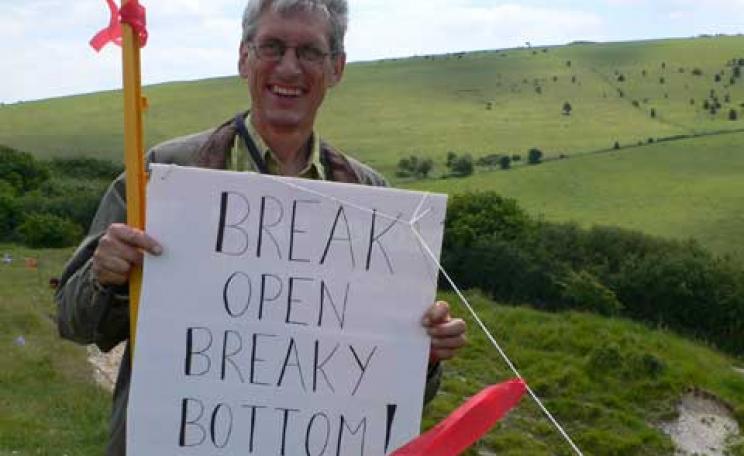It was a clear, bright October afternoon when Stacey Clayton took her small daughter Alanna to the local pond in the tiny Cornish village of St Blazey. They were armed with little more than a handful or three of bread and a few minutes they’d set aside for a pleasant time feeding the ducks. It’s certainly not the type of event that would be newsworthy enough to make the local paper, let alone the national press.
But then the Claytons had a trip to the duckpond with a difference. For a little while they watched a two foot log floating around behind the assorted mallards and tufties that scrabbled for their offerings of bread. Then the log opened its eyes. Mrs Clayton threw a stone at it, and in a most unloglike manner, it scurried off into the undergrowth. One phone call later, and the RSPCA were down at St Andrew’s pond hunting for a young alligator, crocodile, or perhaps a caiman, presumably escaped from someone’s exotic wildlife collection and unlikely to survive the rigours of a British winter. The trip to the duckpond had got into the papers after all.
This is one of the three main ways that wildlife makes the press. It falls into Category A: the bizarre and the unexpected. The croc in the Cornish pond story broke hard on the heels of news of a chimp in a Chinese zoo that had given up smoking, a New Zealand dog with voting rights, and a rare American thrush turning up in Shetland and immediately being killed by a cat.
Then there’s Category B, otherwise known as We’re Doomed. These are conservation stories: Spanish fishing procedures are decimating the shark population of the north Atlantic; a wildlife trust is bidding to raise money to buy a Welsh island and turn it into a nature reserve; Wiltshire honey bees are spiralling into a sharp decline from the effects of a parasitic mite. In the last couple of years, climate change stories have come to dominate this type of reportage.
The final category is subtitled Well Golly Gosh, Isn’t Nature Just Great. Of the many scientific discoveries being made all round the world all the time, once in a while a few catch the attention of a news editor: the gorilla that uses a stick to test the depth of a stream; the spider that plays possum to avoid being eaten by his mate; the insects that can cross patches of water without moving.
Now, to be fair, this sort of thing is what we expect from the press. Dog bites man isn’t a story, man bites dog is. But if you were an alien coming to this planet in an attempt to understand the creatures upon it and had nothing but the daily press to help you through, you’d get the impression that life on earth is in a constant flux of behavioural change and permanently on the brink of extinction.
You’d be right. You’d take back the information you’d pulled together, and you’d be able to give an account of how nature handled her days. Depending on your level of other-worldly intelligence, you might be able to work out that the struggle for survival has been the driving force of life on this planet for about three billion years, environmental forces being the phlogiston behind the flames of evolutionary change. You might report back to your superiors – perhaps with a wry smile on your mouths and a twinkle in your purple eye – that the latest environmental force, mankind, which is throwing up a whole host of brand new challenges for nature to deal with, is at least showing the decency to report what it’s doing. Everyone would tell you that you were a jolly good fellow, slap you on your exoskeleton, and file the planet Earth away as being yet another example of permanent natural strife and change.
But you’d have missed one thing. The visit by Stacey Clayton and her daughter when they found the living log in the duck pond wasn’t their first. They’d spent other afternoons there, simply feeding the ducks without incident. As have other people at other duck ponds for centuries. And none of them have ever made the newspapers. There is no battle for survival here, no newsworthy event of evolutionary or behavioural change, just the sweetness and innocence of the parochial, the harmless charm of the everyday, mirrored by people around the world as they remove themselves from the mundane and spend a little time with the wildlife on their doorstep.
That’s the human dichotomy, to destroy the planet we live on, and to love it at the same time. And then to write about it. And to all those aliens out there trying to understand life on earth, that’s your real story, right there.
This article first appeared in the Ecologist November 2005







